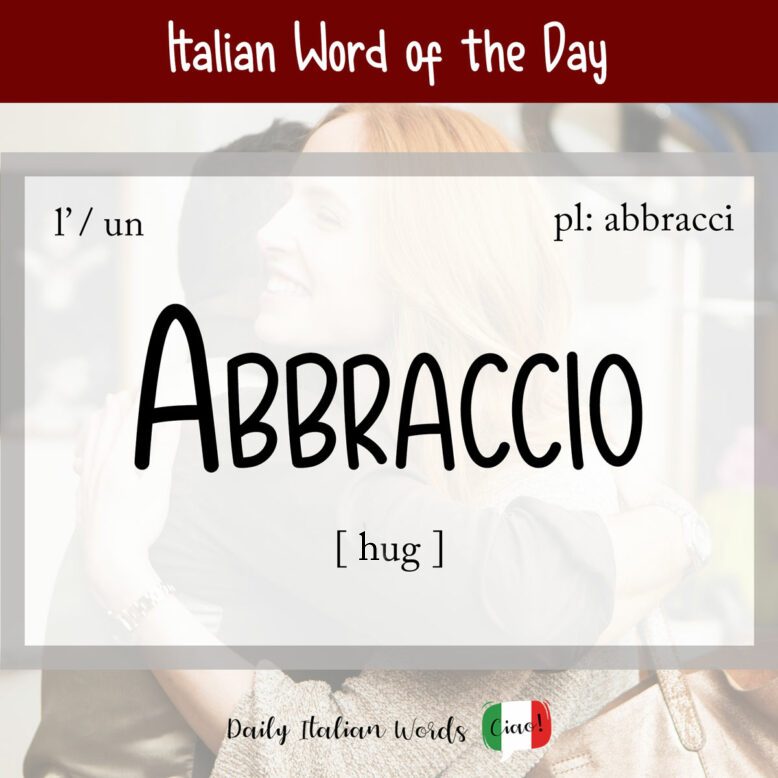Do you consider yourself the “huggy” type? Then you will love today’s word of the day!
The word for hug in Italian is abbraccio. It derives from the verbs abbracciare (to hug) and abbracciarsi (to hug one another), which in turn come from the word braccio meaning arm.

Abbraccio is a masculine noun starting with a vowel, so it takes the following definite and indefinite articles:
- l’abbraccio = the hug
- un abbraccio = a hug
- gli abbracci = the hugs
- degli abbracci = some hugs
One way of saying a big hug in Italian is un grande abbraccio or un forte abbraccio (forte = strong).
Below are a few common verbs you’ll often see used with abbraccio:
- dare / darsi un abbraccio = to give / give each other a hug
- scambiarsi un abbraccio = to exchange a hug
- ricevere un abbraccio = to receive a hug
Si sono date un grande abbraccio.
They gave each other a big hug.

A very specific kind of hugging is cuddling, which can translate as either stare / rimanere abbracciati (lit: to stay hugging) or more commonly, coccolare and farsi le coccole.
When Italians finish a written correspondence such as a letter, email or text, you can expect them to use abbraccio or the plural abbracci in the same way English speakers would write lots of love or best wishes. Below are some common formulas:
- Baci e abbracci. = Kisses and hugs.
- Un bacio e un abbraccio. = A kiss and a hug.
- Vi mando un forte abbraccio. = I send you all a strong hug.
- Un caro abbraccio = A dear hug
- Un abbraccio = A hug
You can also use un abbraccio as a way to say goodbye at the end of a phone conversation.
Ciao Carla, ci sentiamo presto. Un abbraccio!
Bye Carla, speak to you soon. A hug!
The expression un abbraccio mortale (lit: a deadly embrace) refers to an irreversible choice or a bond with someone that we know will lead to ruin.
Finally, abbraccio is a term used in boxing to indicate a clinch, a defensive move in which a boxer wraps his opponents arms and holds on to create a pause.

Heather Broster is a graduate with honours in linguistics from the University of Western Ontario. She is an aspiring polyglot, proficient in English and Italian, as well as Japanese, Welsh, and French to varying degrees of fluency. Originally from Toronto, Heather has resided in various countries, notably Italy for a period of six years. Her primary focus lies in the fields of language acquisition, education, and bilingual instruction.


